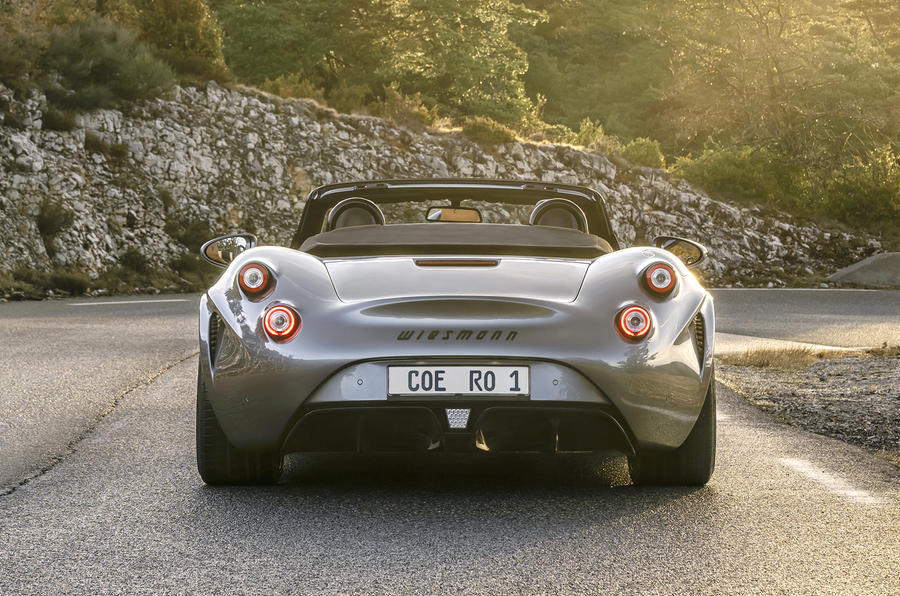German sports car firm Wiesmann has made a hard-hitting comeback after several years of media silence with the reveal of its new Project Thunderball – not only its first electrified product, but also the world’s first electric rear-wheel-drive convertible sports car since the original Tesla Roadster.
The brand – best known for a series of retro-styled sports cars using straight-six, V8 and V10 BMW engines – is on the comeback trail after a tumultuous period since filing for bankruptcy in 2013.
Wiesmann was acquired in 2016 by international technology firm Contec Global, whose managing director Roheen Berry now serves as the car maker’s CEO.
He hailed the new car’s arrival as “a remarkable moment in time for the Wiesmann brand and the culmination of a dream of years of design and engineering excellence.” It will be, he said, “the world’s most exciting electric sports car.”
The Thunderball features a pair of motors on the rear axle delivering a combined 671bhp and 811lb ft – enough, Wiesmann says, to get the circa-1700kg roadster from 0-62mph in just 2.9sec. The powertrain was developed in partnership with fellow German sports car maker Roding Automobile, which specialises in lightweight, carbonfibre construction and is best known for its flagship model, the Roding Roadster, which uses a BMW straight six and weighs just 950kg.
Roding also supplied the Thunderball’s 83kWh battery, which features 800V hardware for charging at speeds of up to 300kW and should be good for a range of 311 miles.

The firm is keen to emphasise how closely related, dynamically, the new EV will be to its combustion-engined forebears.
It claims the regenerative braking system has been developed especially for the Thunderball and, with five settings, can be used “to give a powerful engine braking effect into corners” and thereby give “a purposeful moment of enjoyment to the driver, something lacking in most EVs on the market today”.